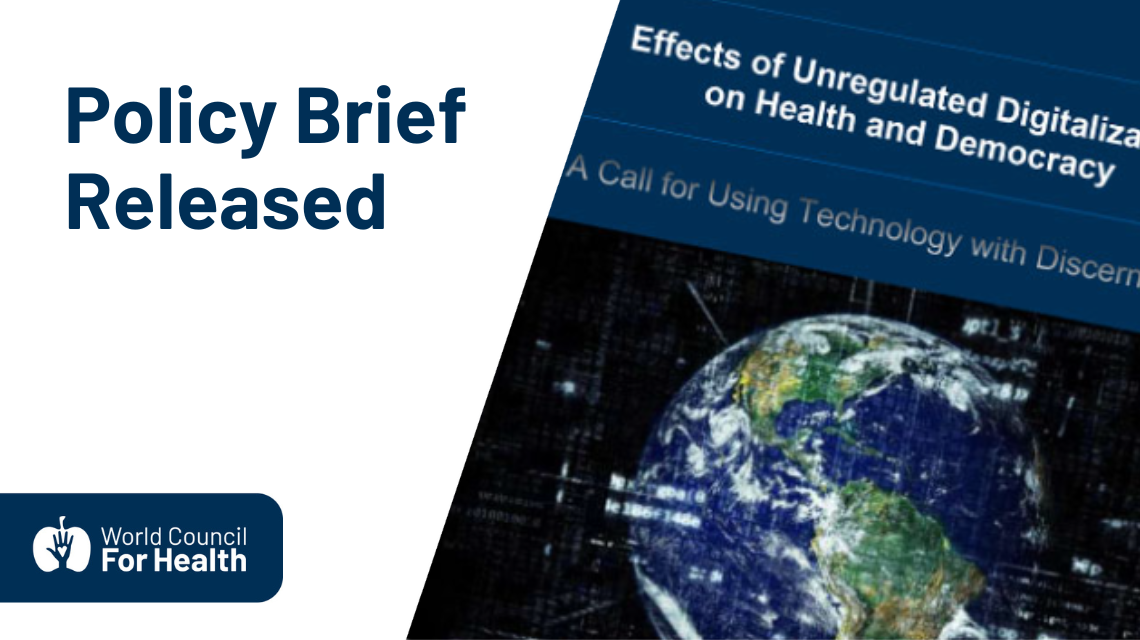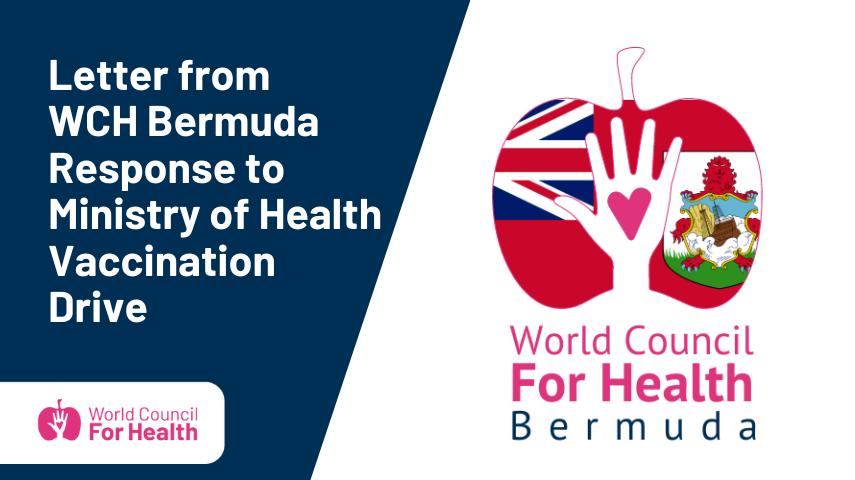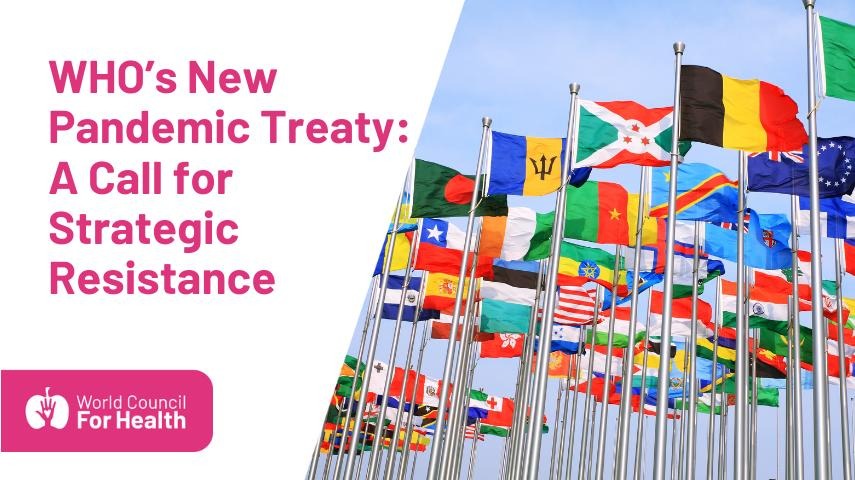WCH expert group urges to use technology with discernment and to subject digital innovations introduced under the umbrella of the Fourth Industrial Revolution to greater scrutiny in order to differentiate between that which is beneficial and that which is harmful.
Bath, 24 August 2023 – An expert group in political science and the natural sciences has prepared for release today an in-depth policy brief on the effects of unregulated digitalization on health and democracy.
We are contemporary witnesses to the accelerated implementation of the Fourth Industrial Revolution with central stakeholders aiming at the digital transformation of all areas of life and production. Aspects of digitalization, if implemented responsibly, can have advantages, for instance, when it comes to global connectivity, the access to information, distance learning and work. Such advantages have been broadly advertised and discussed. The policy brief published today shines a light on the obscured aspects of digitalization that are all too often ignored.
The Fourth Industrial Revolution and the umbrella term of digitalization include a number of positive and negative innovations, the latter presenting a severe threat to health, essential human rights and democracy that must not be underestimated. The public and decision-makers need to differentiate and be careful what they welcome and what they oppose in the name of digitalization.
In parts, what is being presented as digitalization today is a hyped-up ideology as well as a guarantee for material profit and power that is not being questioned. It is sold to the public and political representatives via a progress narrative developed by the IT industry as well as other stakeholders with an interest in the Fourth Industrial Revolution such as the World Economic Forum (WEF). It is being said that if we don’t welcome everything that is technologically feasible and don’t digitize every aspect of our lives and economy, we are going to get left behind economically and will become outcasts socially. This carefully crafted narrative plays with existential angst and fear of exclusion. It is designed to make people accept unquestioningly everything that comes in the name of digitalization.
However, a sober analysis of the Fourth Industrial Revolution or Industry 4.0 shows that, in practice, people are getting left behind and harmed because of unregulated digitalization. Yet, from modern-day slaves and child workers mining the raw materials for end products under inhumane and partly deadly conditions to detrimental physical and mental health effects of certain technological products, the erosion of the essential right to privacy and informational self-determination, the flourishing of illegitimate data mining and biometric mass surveillance, the projected replacement of parts of the human work force by machines, data safety concerns and threats posed by the Artificial Superintelligence arms race, real-world negative effects are being overshadowed by the shiny marketing and frenzied narratives of a trillion-dollar industry as well as ideologically invested interest groups such as the WEF. The destructive potential of the Industry 4.0, if handled in the wrong way, for the environment and the ecosystem as well as its massive wastage of energy and other resources are likewise being widely ignored.
Not everything that is technologically feasible should be deployed. Ethical considerations must be above narrow interests of power and money. It is essential to use technology with discernment. The newly released, in-depth WCH policy brief showcases some aspects of the process of digitalization that negatively impact (public) health, essential human rights and democracy. It discusses radiation-based wireless technology (including 5G), the impacts of excessive or misguided use of digital technology on mental health and development as well as the inhumane conditions under which some technologies are being produced. It further explains the threats emanating from the surveillance economy, Digital ID, a Central Bank Digital Currency (CBDC) and the idea of a cashless society. The document contains policy recommendations to effectively address these issues and avert harm. Further, the document is meant to empower the reader to take informed decisions in their own every-day life when interacting with specific technologies and the effects of the Fourth Industrial Revolution.








